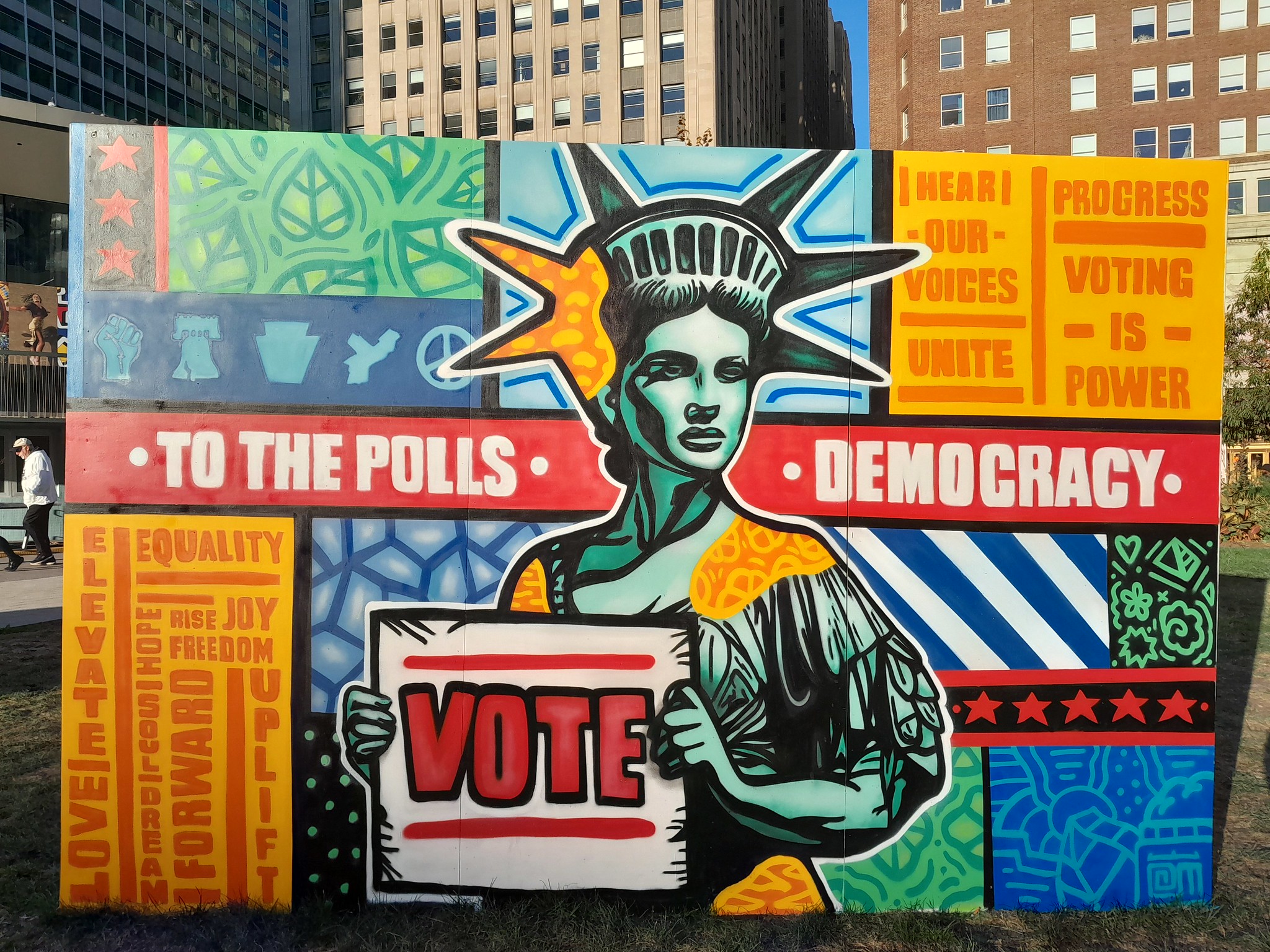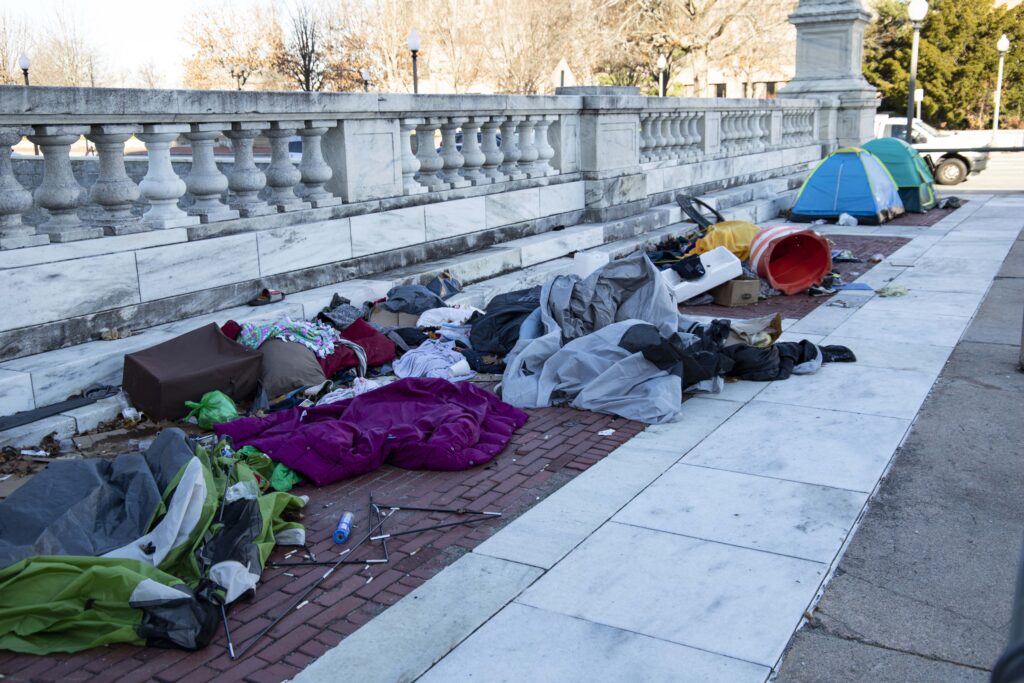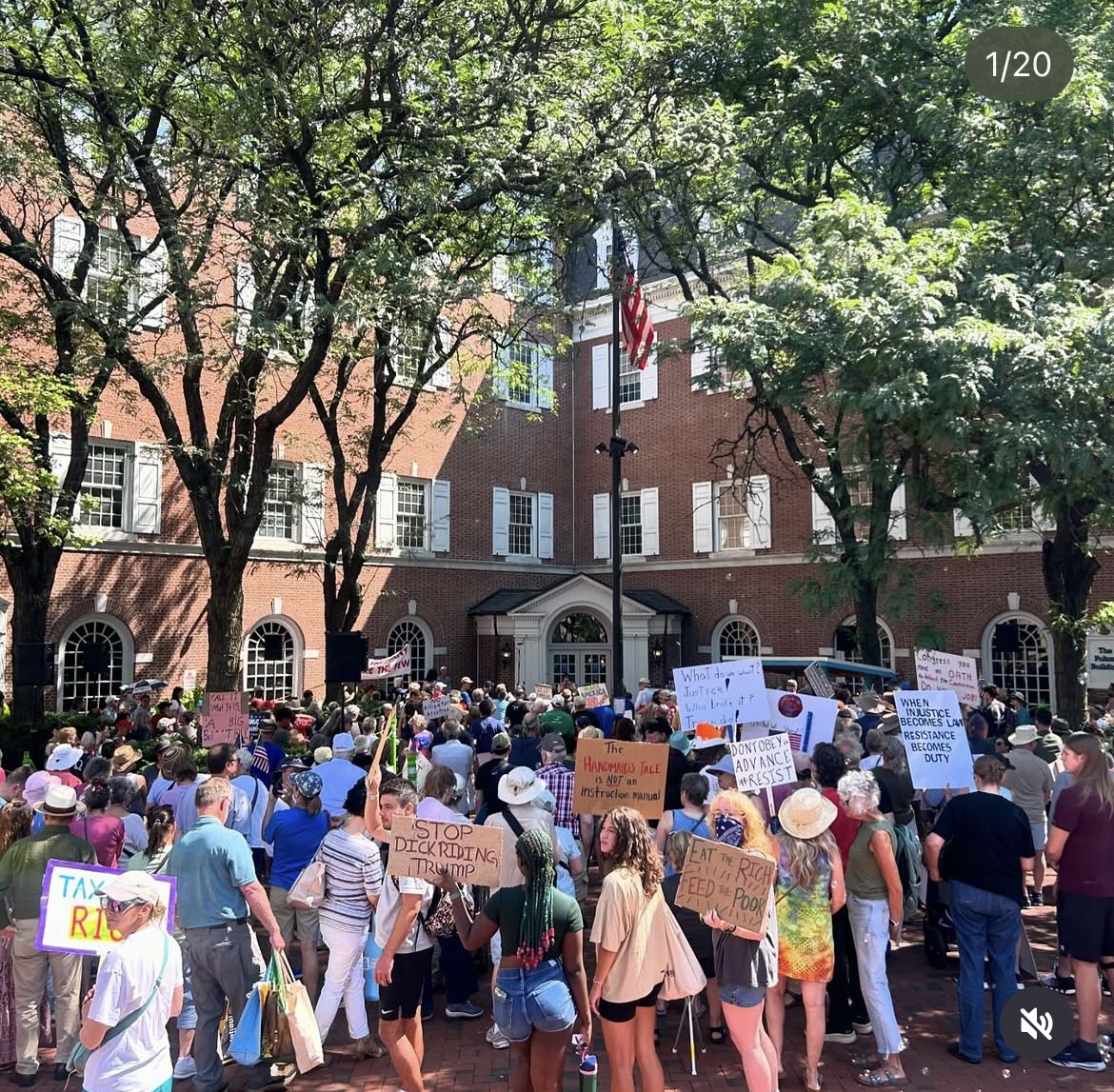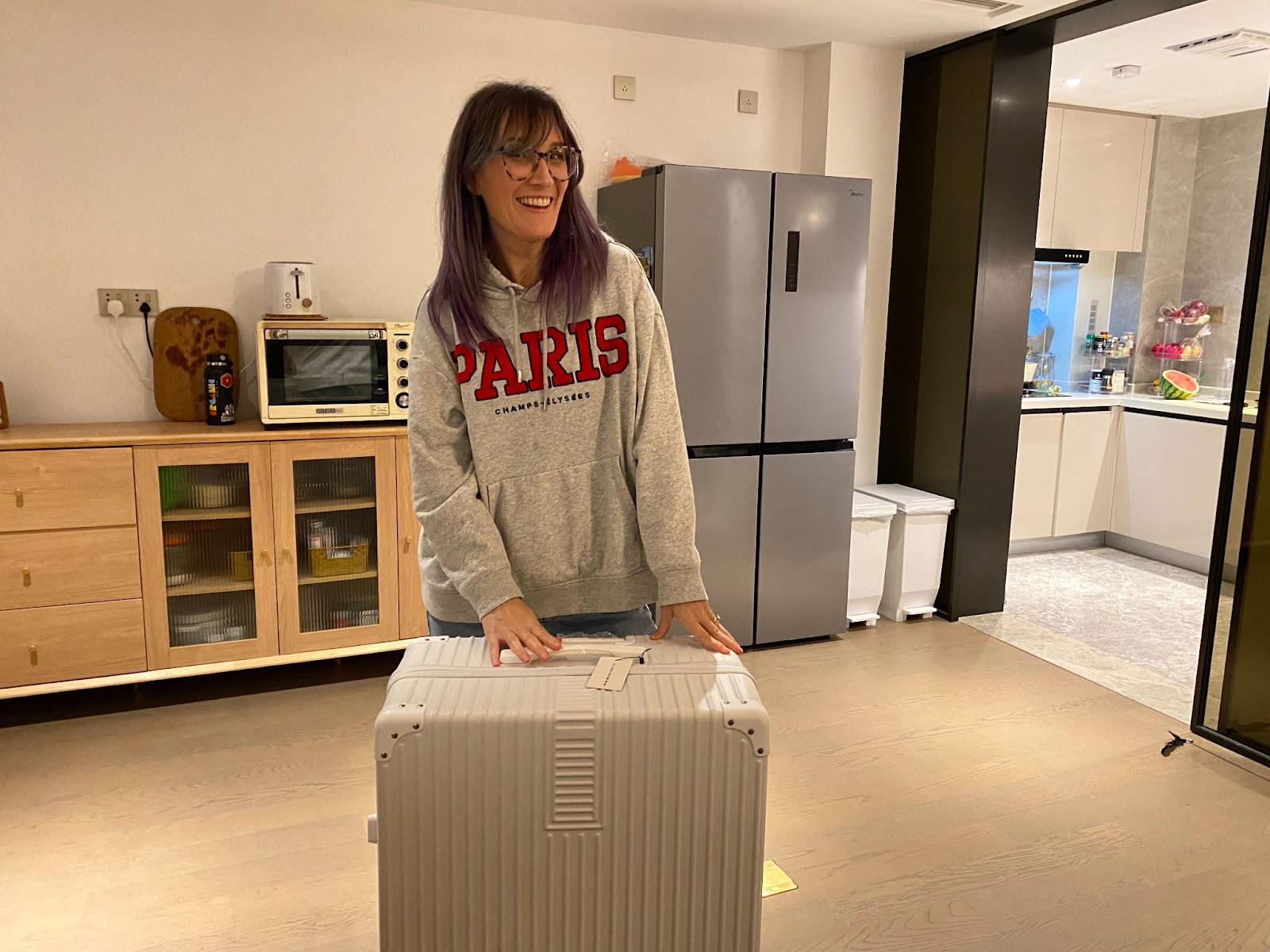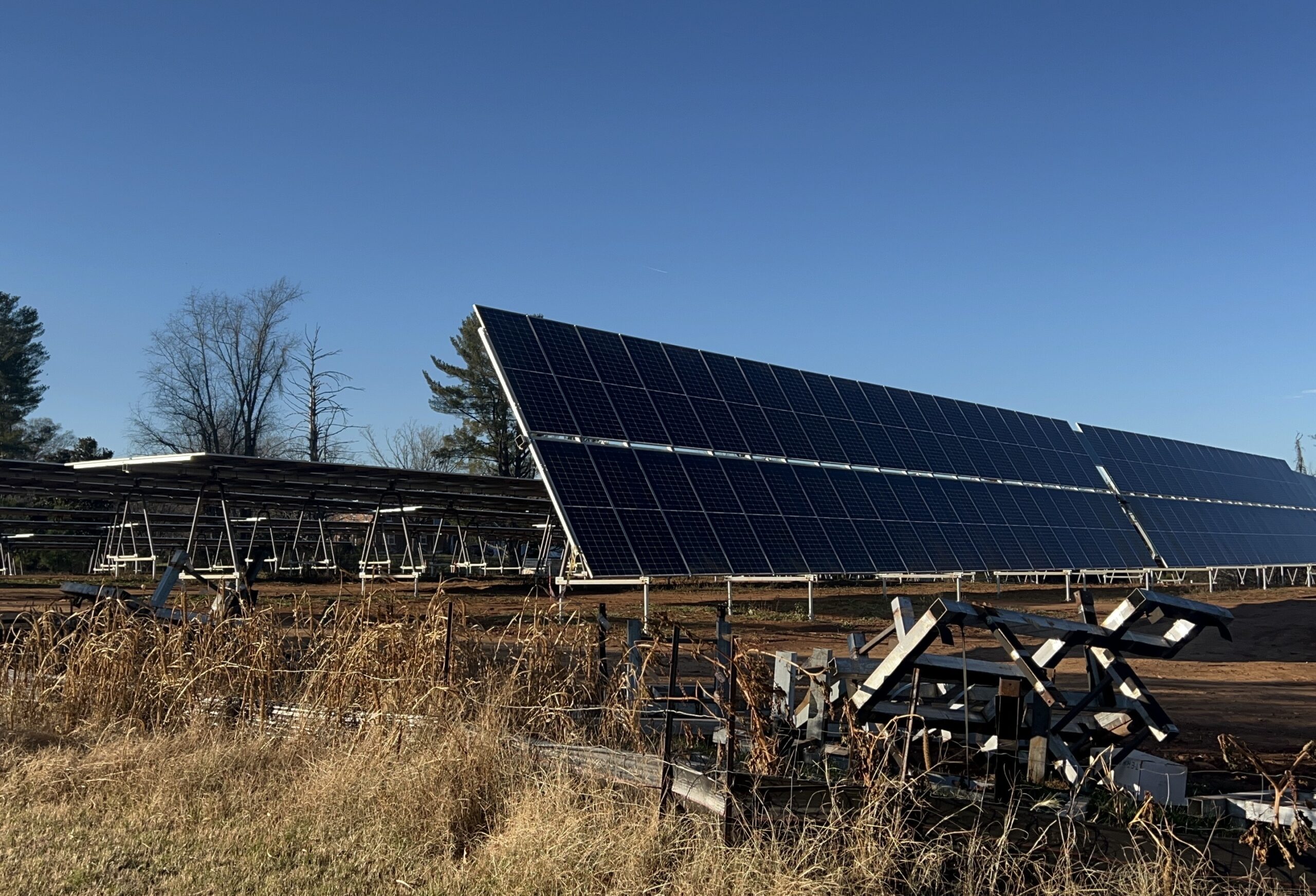On a Saturday afternoon, a crowd packed the Overlap Gallery in Newport, R.I. for the opening of the “No Place Like Home” exhibit which focuses on the importance of permanent shelter. The exhibit featured artworks depicting interpretations of “home,” with speakers including Jacqueline Mercado who shared her journey from homelessness.

Mercado speaks at Overlap “No Place Like Home” exhibit opening. (Credit: Veronica Bruno)
“I was formerly homeless as a teen,” said Mercado, who ran away from home at age 15. She left a dysfunctional family environment, preferring to sleep on the streets until she found a shelter which helped her turn her life around. “When I went into that shelter, I got my first job, graduated high school, and then got my first apartment,” Mercado said.
The homeless shelter provided a foundation and a case worker helped her, inspiring her to become a case manager herself. Mercado now helps others navigate the same challenging circumstances. She manages two housing developments, including a 10-unit project in Pawtuxet Village, RI., placing families and individuals in supportive housing that also offers the type of worker training programs that gave her a lifeline when she needed it.
Groups like the Rhode Island Coalition to End Homeless hope that the recently approved $120 million bond will help relieve some of the crushing housing stress in the state. About $90 million is earmarked for affordable housing and acquisition, including for emergency shelters similar to the one where Mercado lived.
The bill couldn’t come at a more needed time, with homelessness having exploded throughout the state, ballooning to 400 percent since 2018, according to Crossroads, a Providence housing organization. The post-pandemic surge is a result of overwhelmingly rising rents, exacerbated by a severe shortage of supply. Crossroads CEO Michelle Wilcox told “The Providence Journal” that she’s never seen it this bad in her 30 years of service.
The state’s average median income is about $107,000, too low for many to qualify for a mortgage. In the most affordable area of Woonsocket, a median household income of $119,123 is needed to buy a home . Almost 65 percent of homes in other areas require an income of $150,000. In 2023, the median price for a single-family home in the state was $425,000, necessitating an estimated monthly housing payment of $3,592 and an annual income of $143,687, far-reaching targets for many in the state.
In 15 towns, Rhode Islanders are spending more than 50 percent of their income on housing, further compounding their cost burden, according to RI’s Department of Health housing cost burden data.
Mercado, who has been salaried for several years now. She did not disclose her salary to us, but a housing case worker in RI makes about $76,000. At that rate, she’s priced out of low income housing, just missing the $70,000 upper threshold for those who have to pay 80% (of the rent) towards the low income options.
“More money, more problems,” she says.
Mercado can only afford to rent a room at the moment. With skyrocketing rents, there’s very little she can afford by herself. While advocating for those struggling to find shelter, she herself continues to grapple with limited supply.
“I still struggle now,” she says.
Renting an apartment is unaffordable for many in the state, where the state’s median renter income $48,815 falls short of $40,000 needed to rent the average $2,107/month 2-bedroom apartment, according to the National Low Income Housing Coalition.
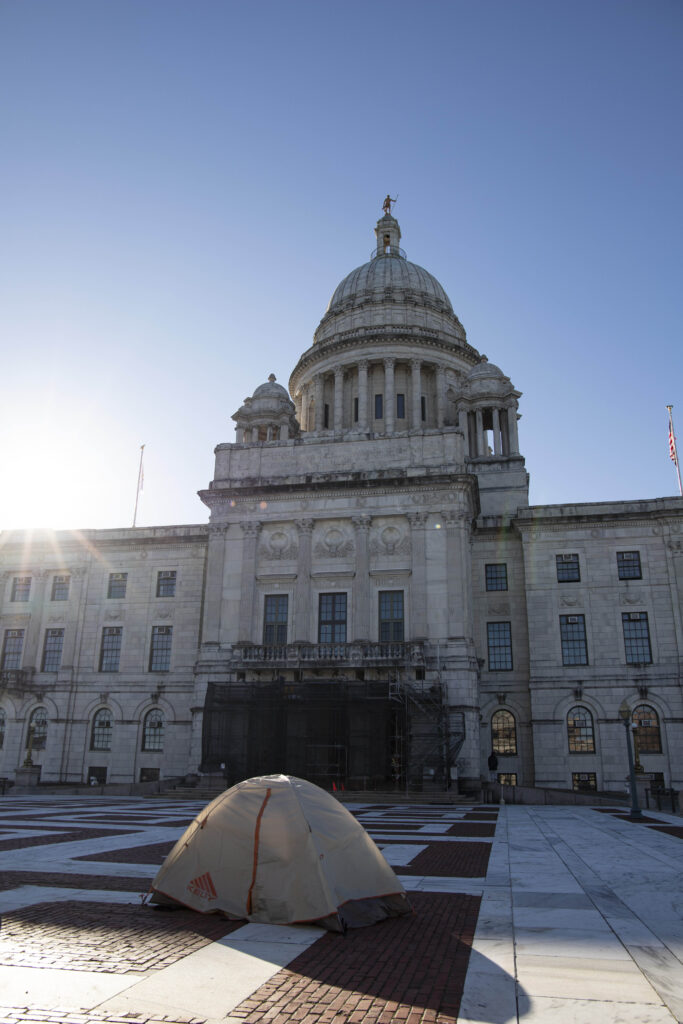
Part of the homeless encampment at the Providence capitol, 2022. [Credit: Veronica Bruno]
The new housing bond is estimated to add just 586 more units to combat the state’s expanding housing emergency. Combined with the 1,500 units set aside from state and federal funding the last few years, it falls far short of the estimated 26,351 units needed to fundamentally close the affordable housing gap. The additional funding will certainly help the situation, but is still viewed by many as just a drop in the bucket.
Simmons said that the bond funding—which is slated to go into effect in 2026—will provide a needed boost for affordable housing projects in the state, but she also worries that the region will never be able to catch up. She’s especially concerned with how much of a difference it will make after budget cuts this year have exacerbated the housing crisis.
“We’re going to probably see a lot of loss in funding, so we have to really be really creative,” Simmons said.
Gov. Dan McKee seems to be making housing a big priority for his administration. He’s broken ground on several housing projects recently, and he newly appointed a permanent housing secretary, Deborah J. Goddard—the fourth secretary in just a few years—in the role.
On Wednesday, Nov. 13, McKee broke ground at the location for the Ade Bethune House in Portsmouth, which will provide 54 affordable housing units for those 55 and older, where most projects of its kind start at age 62. The housing project will serve as the Portsmouth Senior Center
The Ade Bethune House will bring 54 units of affordable, age-restricted housing to Portsmouth and help meet critical housing needs for our aging population. Today’s groundbreaking is another example of how @RIHousing is working to address critical housing needs in our state. pic.twitter.com/yKEjvgb3cg
— Governor Dan McKee (@GovDanMcKee) November 13, 2024
For Simmons, there’s still so much to do.
“This is a problem that affects all sectors, all populations and everywhere throughout the state,” she said.
